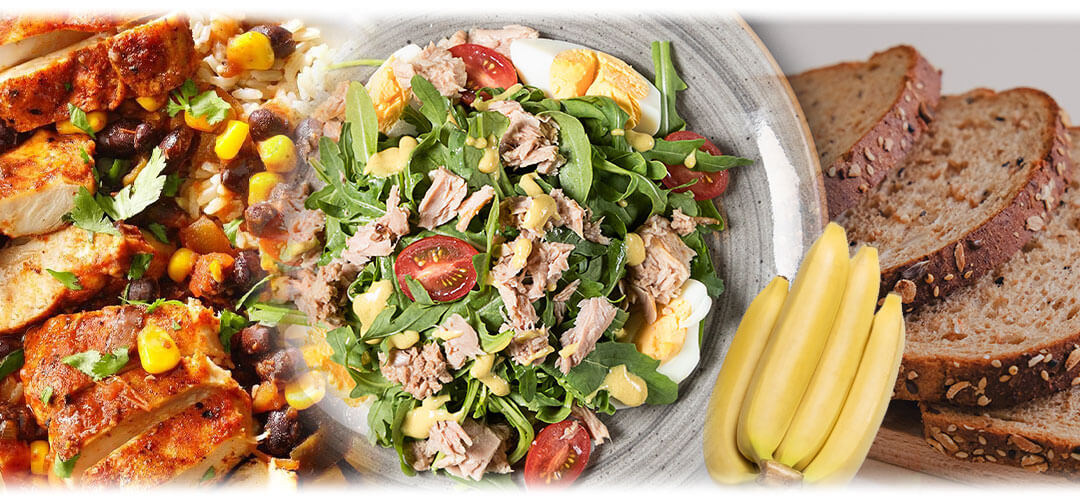
Vitamins are essential nutrients that play a crucial role in our overall health and wellbeing.
They are organic compounds we need in small amounts to function properly, and help with everything from maintaining strong bones to supporting a healthy immune system. Of all the vitamins, Vitamin B is one of the most important.
Vitamin B is actually a group of eight different vitamins, all of which play a vital role in your body’s metabolic processes. These include Thiamine, Riboflavin, Niacin, Pantothenic Acid, Pyridoxine, Biotin, Folate and Cobalamin. Each of these vitamins has its own unique benefits, but they all work together to help maintain optimal health.
In this blog, we’ll take a closer look at the health benefits of Vitamin B, the signs and symptoms of Vitamin B deficiency, and the different ways you can get more Vitamin B into your diet. Whether you’re looking to boost your energy levels, support your immune system or just improve your overall health, Vitamin B is an essential nutrient that can help you achieve your goals. So, let’s dive in and explore the many benefits of B vitamins.
• What is Vitamin B?
Vitamin B is a water-soluble vitamin complex essential for a variety of bodily functions. Unlike fat-soluble vitamins (such as Vitamins A, D, E and K), which are stored in the body’s fat cells and can accumulate to toxic levels, water-soluble vitamins are not stored in the body and must be replenished regularly through diet or supplements. There are eight different types of B vitamins, each with its own unique function in the body:
-
- Thiamine (B1) helps convert carbohydrates into energy and is important for nerve and muscle function.
- Riboflavin (B2) and Niacin (B3) help convert food into energy and are important for maintaining healthy skin, nerves and digestion.
- Pantothenic Acid (B5) supports hormone and cholesterol production.
- Pyridoxine (B6) helps the body make neurotransmitters (chemical messengers in the brain) and is vital for red blood cell formation.
- Biotin (B7) helps the body metabolise fats, carbohydrates and protein, and is important for healthy hair, skin and nails.
- Folate (B9), also known as Folic Acid, is essential for cell growth and development and is especially important during pregnancy to prevent birth defects.
- Cobalamin (B12) helps the body make red blood cells and DNA and is important for maintaining a healthy nervous system.
Each of these vitamins plays an important role in your overall health and well-being, and a deficiency in any one can cause a host of health problems.

• Health Benefits of Vitamin B
Vitamin B plays a critical role in several body functions, including metabolism, energy production and maintaining healthy skin, hair and nails. It has many benefits, including:
• Improved energy levels
B vitamins are essential for converting the food we eat into energy. Thiamine, Riboflavin, Niacin, Pantothenic Acid, and Pyridoxine are particularly important in this regard. Studies have shown that people who supplement with B vitamins experience increased energy levels, improved mood and reduced fatigue.
• Boosted immune system
B vitamins also play a crucial role in supporting a healthy immune system. People with a deficiency in Vitamin B6, for example, have weaker immune systems and are more susceptible to infections.
• Healthier skin, hair and nails
B vitamins are essential for maintaining healthy skin, hair and nails. Biotin, in particular, has been shown to improve the strength and thickness of nails, as well as promote healthy hair growth. Similarly, Niacin has been shown to improve skin hydration, reduce inflammation and improve the appearance of fine lines and wrinkles.
• Improved cognitive function
B vitamins are also important for maintaining cognitive function and preventing mental decline. Studies have shown that people with higher levels of B vitamins (particularly Folate, Cobalamin and Pyridoxine) have better memory, attention and brain function.
• Reduced risk of heart disease and stroke
Several studies have linked B vitamin deficiencies to an increased risk of heart disease and stroke. Cobalamin has been shown to lower levels of homocysteine, an amino acid that can damage blood vessels and reduce the risk of heart disease and stroke.
Overall, Vitamin B is a critical nutrient that plays a crucial role in maintaining good health and well-being. If you’re looking to boost your energy levels, support your immune system or just improve your overall health, getting enough Vitamin B in your diet is essential.

• Signs & Symptoms of Vitamin B Deficiency
Despite the importance of Vitamin B, many people don’t get enough of it. This can lead to a range of symptoms and health problems. Some of the most common signs and symptoms of Vitamin B deficiency include:
• Fatigue
One of the most common symptoms of Vitamin B deficiency is fatigue. This is because B vitamins play a crucial role in energy production, and a lack of these vitamins can lead to low energy levels and feelings of tiredness.
• Weakness
In addition to fatigue, Vitamin B deficiency can also cause weakness and muscle pain. This is because B vitamins are important for muscle function and repair.
• Numbness or tingling in hands and feet
Vitamin B deficiency can also cause numbness or tingling in the hands and feet. This is because B vitamins are important for nerve function, and a lack of these vitamins can damage the nerves.
• Anaemia
Vitamin B12 and Folate are particularly important in red blood cell production. A deficiency in either of these vitamins can lead to anaemia, a condition in which the body does not produce enough red blood cells to carry oxygen to the body’s tissues.
• Mood disorders
Vitamin B6 is important for supporting neurotransmitters, the chemicals that help regulate mood. A deficiency in Vitamin B6 can lead to mood disorders such as depression and anxiety.
Long-term Vitamin B deficiency can also cause irreversible nerve damage. This is because B vitamins are important for the maintenance and repair of the nervous system. If left untreated, nerve damage caused by Vitamin B deficiency can lead to a range of symptoms, including difficulty walking and mobility problems, muscle weakness and numbness or tingling in the hands and feet. If you are experiencing any of these symptoms, it’s important to speak to your doctor to get tested for Vitamin B deficiency.

• Sources of Vitamin B
There are many different types of food sources of Vitamin B, including meat and poultry, fish, beans, peas, nuts, eggs, green leafy vegetables, fortified cereals and whole grains. To incorporate more of these foods into your diet, try to eat a varied and balanced diet that includes a mix of different food groups.
- For breakfast, try whole grain cereal with milk and banana, or spinach and mushroom omelette with whole-grain toast.
- For lunch, try tuna salad sandwich on whole grain bread, or lentil soup with a side salad of spinach and mixed vegetables.
- And for dinner, have grilled chicken or fish with steamed broccoli and brown rice, or vegetarian chilli with mixed beans and a side of quinoa.
And to keep those hunger pangs at bay, try swapping chocolate and crisps for nuts and seeds, hard-boiled eggs or hummus with carrots and whole grain crackers for a healthy snack. By incorporating a variety of these foods into your diet, you can ensure that you are getting enough Vitamin B to support optimal health. If you are unable to get enough Vitamin B through your diet alone, try a natural, nutritional Vitamin B supplement.
• Benefits of Vitamin B Supplements
While it’s always best to get your vitamins and minerals from food sources, sometimes supplements can be a helpful addition to your diet. Supplements can help ensure that you are getting enough of each type of Vitamin B, especially if you have dietary restrictions that limit your intake of certain foods.
They can be a convenient and easy way to get your daily dose of Vitamin B, especially if you have a hectic schedule or don’t have time to prepare nutrient-dense meals. They can also be helpful if you have a health condition requiring higher doses of Vitamin B, such as anaemia or certain types of nerve damage.
However, be careful. Some supplements may interact with prescription medications, so it’s important to talk to your doctor before starting any new supplements to determine if it’s necessary and safe for you. In general, most people can get enough Vitamin B from a balanced diet, but some people may require supplements, such as strict vegetarians or vegans who may not consume enough Vitamin B12 from plant-based sources.
When choosing a Vitamin B supplement, look for one that contains all eight types of Vitamin B, and check the label to make sure that the dosage is within the recommended daily allowance. Be cautious of high-dose supplements or megadoses, as these can be harmful to your health.
Vitamin B is an essential nutrient for optimal health, so it’s important to ensure that you’re getting enough of each type of Vitamin B in your diet. While supplements can be a helpful addition, they are not a substitute for a healthy and balanced diet.
Disclaimer:
Information and other content provided in Lily & Loaf blogs should not be construed as medical advice and should not be considered a substitute for professional medical expertise. If you have any medical concerns, you should consult with your health care provider.


